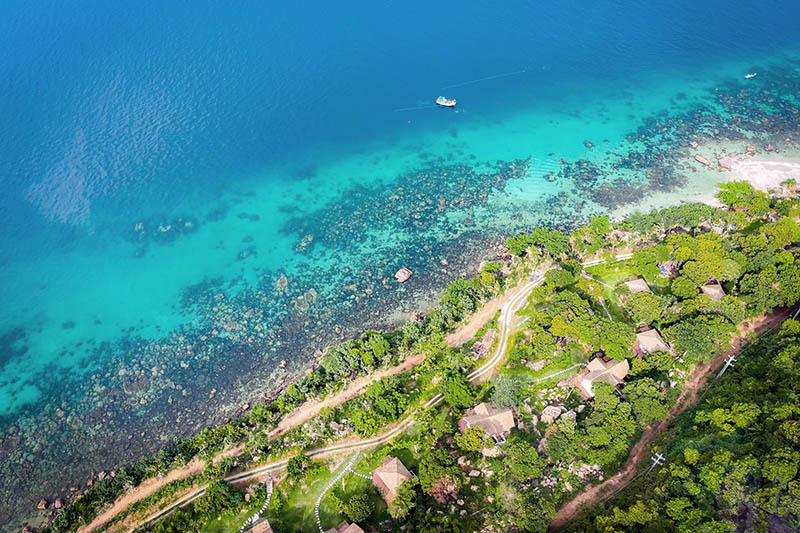Vietnam tourism: Light at the end of the tunnel?
Vietnam considers a pilot program to reopen Phu Quoc island to international tourists. So, Vietnam needs a slow and steady approach to this and any future plans to re-ignite tourism.

The resort island of Phu Quoc is preparing for a pilot plan to welcome international tourists with vaccine passports for six months starting from late 2021.
Safety of tourism reopening
If the history of tourism since World War II has taught us anything, it is that tourism always rebounds exponentially after crises. The same will happen once the current COVID-19 pandemic is either controlled or the world learns to live with it, much like we do with other illnesses such as the flu. International tourism has begun its recovery in certain parts of the world, and Vietnam will be no exception.
It has recently been announced that the resort island of Phu Quoc is preparing for a pilot plan to welcome international tourists with vaccine passports for six months from late 2021. Provided that all the proposed measures for health and safety and disease prevention are followed to the letter, this can be a good step to slowly restart the tourism industry in Vietnam.
To ensure the safety of such reopening, the entire population of Phu Quoc must be fully vaccinated and only tourists who have been fully vaccinated should be allowed. The tourists must undergo routine COVID-19 tests and stay within designated areas.
The authorities must make sure that any international tourists come from countries where the pandemic has been fully controlled. Some of Vietnam’s primary external markets, such as China, are currently not allowing outbound travel, so this will be a great opportunity to diversify our range of international tourists from European countries as well establish a more dominant position with existing markets such as Russia, South Korea, and Japan.

Phu Quoc is a particularly good location as a test case in opening to tourism, as islands are easier to control. It also has good medical facilities and is a coveted international tourism destination. If this experiment is carried out successfully, Vietnam can tentatively look at the middle to end of next year for partial reopening of certain other areas and provinces of Vietnam.
Certainly, it will be an extremely careful and gradual opening, and before we can think of opening the country to international travel (except for areas such as Phu Quoc), we must make sure it is safe for domestic travel.
Lessons learned
Before Phu Quoc, Phuket in Thailand and Bali in Indonesia have already reopened their shores to international tourists. There are four key lessons learned from these islands’ initial efforts to adjust to the “new normal of travel”.
First, it is critical to have well-qualified, trained staff in place before reopening. After months of redundancies, the attraction and retention of qualified personnel to work in tourism and hospitality should be a priority.
Second, it is extremely important to have open and honest dialogue and cooperation between all stakeholders in the tourism industry, including government, airlines, hotel owners and operators, travel agents and tour operators, advisory boards, and promotional entities. All stakeholders should be involved in the process of reopening from the beginning and allowed to provide their input.
Third, it is essential that additional financial support is given to the hospitality industry, be it in the form of tax breaks, water and electricity subsidies, debt alleviation and/or staff support.
Fourth, it is of paramount importance that good logistics are in place and the tourism and hospitality supply chain is not disrupted, as materials, supplies, food and beverage items, amenities etc. are critical for optimal functioning of the hospitality industry. Without a robust supply chain, the success of any reopening efforts will be in jeopardy.








